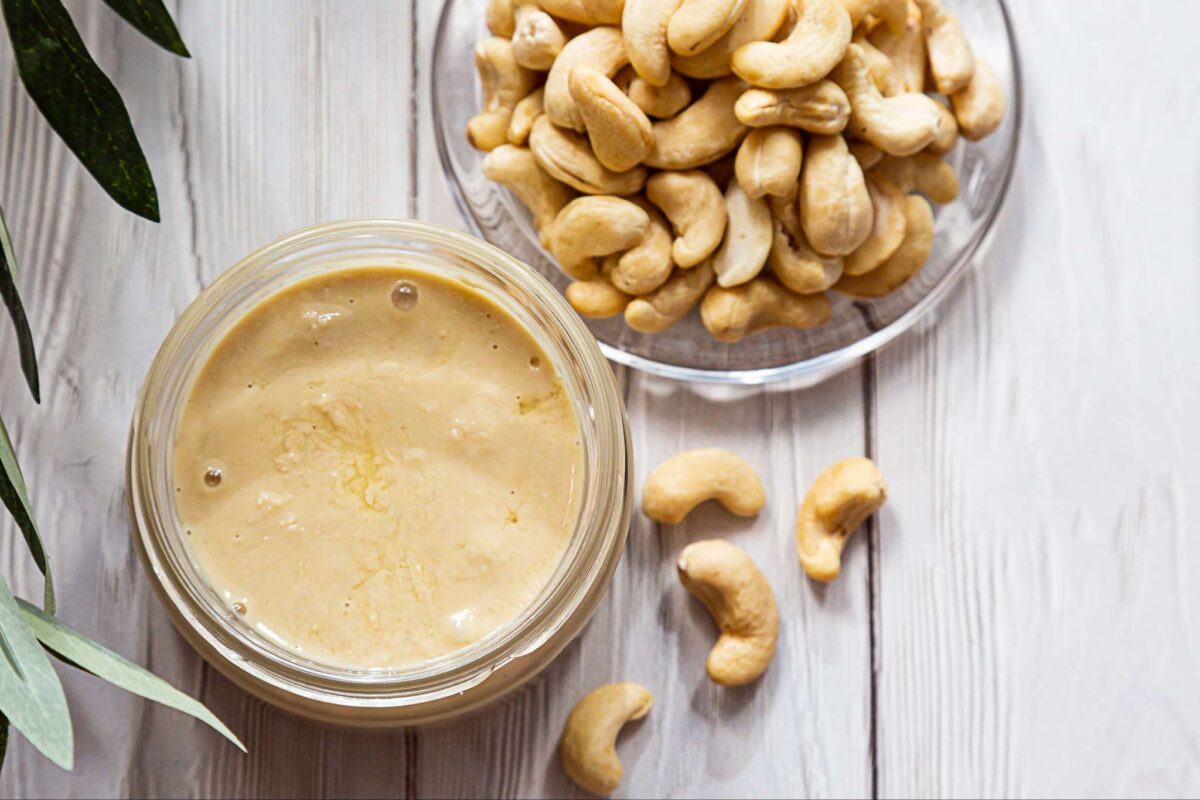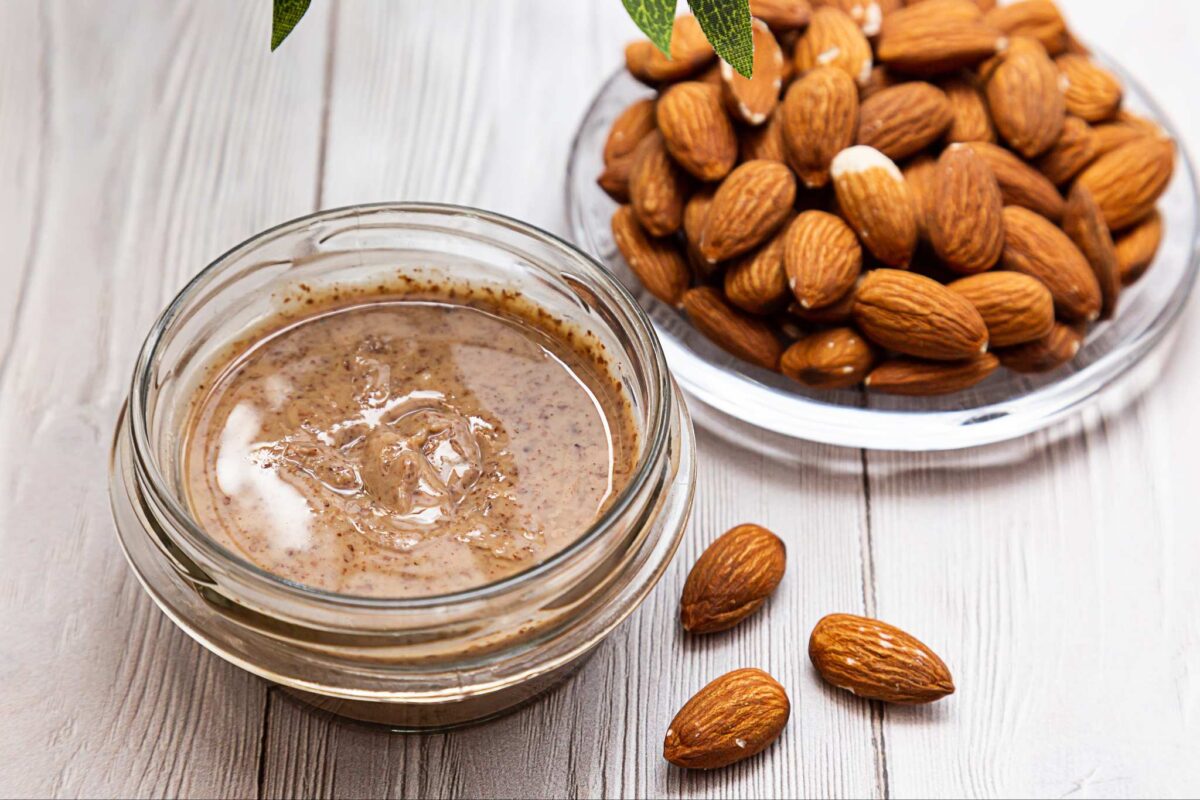Taste Profiles: How Cashew Butter Vs Almond Butter Differ in Flavor
Almond butter offers a rich, earthy flavor with a slight bitterness, especially when made from roasted almonds. This robust flavor profile works well in products that aim to balance savory and sweet elements, such as protein bars, spreads, or baked goods. It complements bold ingredients like dark chocolate or spices, adding depth to the overall taste.
Cashew butter, on the other hand, has a mild, creamy sweetness. Its subtle flavor makes it ideal for products where a neutral base is needed, such as creamy sauces or dairy-free alternatives. Cashew butter’s natural sweetness enhances the flavor of desserts, making it a versatile ingredient for various culinary applications.
Both butters are valued for their distinctive tastes, but almond butter’s stronger flavor profile may appeal more to manufacturers looking for a more pronounced nutty flavor in their products.
Texture Considerations: Creaminess and Spreadability in Cashew and Almond Butters
Texture plays a pivotal role in food production, particularly in product categories like non-dairy beverages, spreads, and baked goods. Almond butter has a thicker, slightly grainy texture due to its higher fiber and protein content. While still creamy, almond butter’s firmer consistency makes it suitable for applications that require more structure, such as protein bars, nutrition bars, and spreads. This thicker texture provides a satisfying mouthfeel and holds up well in products designed to maintain their shape, such as layered desserts or baked goods.
On the other hand, cashew butter is known for its smooth consistency, largely due to its higher carbohydrate and fat content. It spreads easily and offers a smooth mouthfeel, making it a preferred ingredient in non-dairy products like cheeses and ice cream. Its creaminess also enhances sauces and fillings, where a velvety texture is essential.
In manufacturing, almond butter’s thicker texture works well in products that need a more solid consistency, while cashew butter’s smoothness excels in recipes that prioritize creaminess and ease of blending.
Nutritional Breakdown: Comparing the Health Benefits of Cashew and Almond Butters
Nutritional content is a key consideration for food developers, especially for health-conscious products. Both almond butter and cashew butter offer unique health benefits, but there are some differences in their composition that can impact their use in product development.
| Nutrient |
Almond Butter
(per 100g)
|
Cashew Butter
(per 100g)
|
| Energy (kcal) |
614 |
587 |
| Protein (g) |
21 |
17.6 |
| Total Fat (g) |
55.5 |
49.4 |
| Fiber (g) |
10.3 |
2 |
| Calcium (mg) |
347 |
43 |
| Iron (mg) |
3.49 |
5.03 |
| Magnesium (mg) |
279 |
258 |
| Vitamin E (mg) |
24.2 |
0.252 |
| Monounsaturated Fat (g) |
32.4 |
29.1 |
| Polyunsaturated Fat (g) |
13.6 |
8.35 |
Almond Butter is higher in protein, fiber, and vitamin E compared to cashew butter. These qualities make almond butter ideal for use in products targeting muscle maintenance, heart health, and digestive wellness. Its fiber content supports satiety and digestive health, while its vitamin E acts as an antioxidant, promoting skin and cellular health.
Cashew Butter, while slightly lower in fat and fiber, is rich in iron and magnesium, making it beneficial for products aimed at improving energy levels and supporting overall metabolic function.
Applications in Product Development: Where Almond Butter and Cashew Butter Shine
Both almond butter and cashew butter can enhance a variety of products, from dairy-free alternatives to high-protein snacks, but their distinct characteristics make each better suited for different applications.
Almond Butter Applications:
- Non-Dairy Beverages: Almond butter can add creaminess and richness to non-dairy beverages like almond milk, offering a natural flavor boost while enhancing the mouthfeel. Its healthy fat content provides a satisfying texture that appeals to consumers seeking lactose-free options.
- Non-Dairy Ice Cream, Cheese, Yogurt: Almond butter is ideal for plant-based dairy alternatives, where its texture and rich taste contribute to a luxurious, smooth mouthfeel. It brings a nutrient boost, with healthy fats and vitamins, to products like non-dairy ice creams, cheeses, and yogurts.
- Nutrition or Protein Bars: Almond butter’s higher protein and fiber content make it a great addition to nutrition and protein bars, offering both structure and nutrition. It supports product claims related to heart health, satiety, and muscle maintenance.
- Baked Goods and Fillings: Almond butter adds richness and flavor to baked goods and fillings, helping create products that are nutritious and clean-label. Its natural taste pairs well with sweet or savory ingredients, making it perfect for cookies, pastries, and muffins.
Cashew Butter Applications:
- Smooth Spreads and Sauces: Cashew butter’s creamy texture is perfect for spreads, sauces, and dips where smoothness is a priority. Its mild flavor allows for flexibility, letting other ingredients shine without overwhelming the overall taste of the product.
- Dairy-Free Desserts: Cashew butter excels in dairy-free desserts like ice cream and puddings due to its ultra-creamy consistency. It’s also an excellent option for plant-based cheese and yogurt formulations, where a smooth and luxurious mouthfeel is critical.
- Plant-Based Fillings: Cashew butter’s neutral taste and creamy texture make it a great choice for fillings in desserts, pastries, or savory applications like ravioli or stuffed vegetables, where a rich, smooth consistency is desired.
Innovating Almond Butter with Harris Woolf Almonds
Harris Woolf Almonds takes pride in being a trusted partner for businesses looking to create high-quality almond-based products. With extensive expertise in almond production, we offer a variety of almond butter options that can be customized to meet your specific needs. Whether you’re aiming for a rich medium roast or prefer a milder light or extra light roast, we provide the flexibility to help you craft the perfect flavor profile for your products.
We go beyond great taste, working closely with brands to customize almond butter for a range of applications, including non-dairy beverages, nutrition bars, baked goods, and more. With our commitment to sustainable farming and premium quality, Harris Woolf Almonds is here to help you innovate and meet the growing demand for clean-label, nutritious products.
Learn more about almond butter product specs or customization options. Contact us today!














